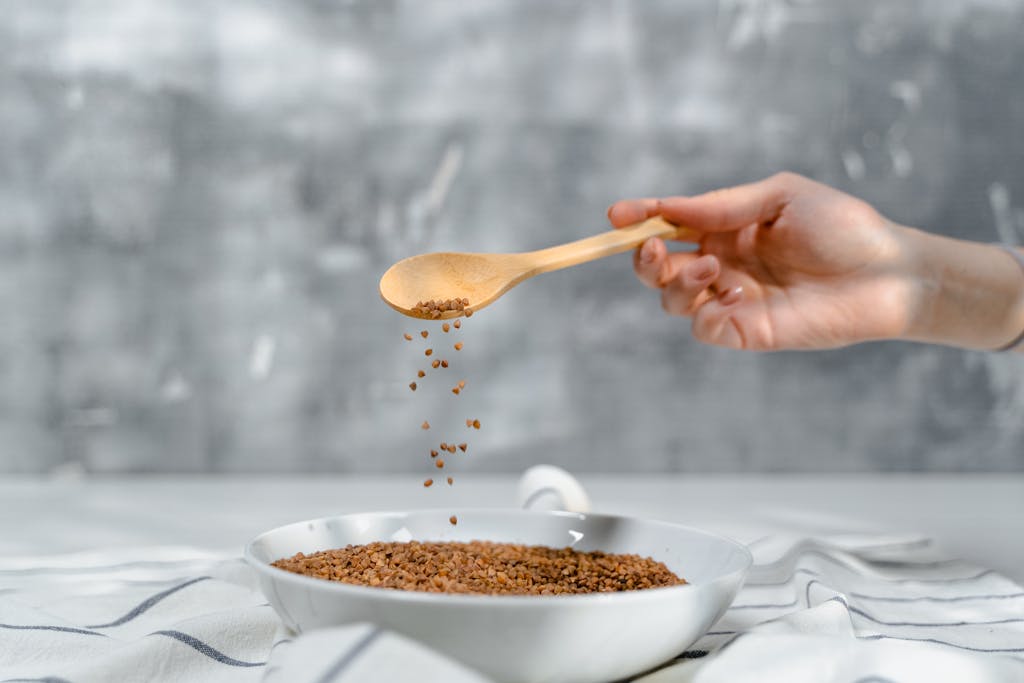
Flaxseeds are well-known for their magnificent nutritional benefits. They are so good for heath as well as fitness that they have been raised for like thousands of years. Flaxseeds are widely used in traditional medicine, culinary applications, and most importantly in today’s health diets. This detailed guide will address the below mentioned aspects of flaxseeds in detail:
- Flaxseeds and Their Names in Different Languages
- Health Benefits: Flaxseeds
- Culinary and Other Uses of Flaxseeds
- Where to Find Flaxseeds
- Cost of Flaxseeds
- Flaxseed Oil vs. Whole and Ground Flaxseeds
- How to Store Flaxseeds for Maximum Freshness
- Possible Side Effects and Precautions
- Flaxseeds in Historical Contexts
- Flaxseeds in Modern Contexts
Flaxseeds and Their Names in Different Languages
Flaxseeds
Flaxseeds are small, nutrient-rich seeds from the flax plant (Linum usitatissimum). They are very especially beneficial in this sector where they contain high content of;
- Omega-3 fatty acids
- Fiber
- Lignans.
These all offer plenty of health benefits. Flaxseeds are also good in the matter that they can be consumed whole, maybe ground into flaxseed meal, or can also be used to extract flaxseed oil. They improve nutritional value to a food or a dish(in which it’s used) as well as to human body to. Flaxseeds are generally added to
- Smoothies
- Baked goods
- Cereals
- Yogurts
Flaxseeds Various Names: Other languages
There are also many other names for Flaxseeds by which they can be called. Every region has some different name to use. Many use the same name too. I am going to mention some of them here and you can search for more names on Google or on ChatGPT. These various names reflect the long history and widespread use of the Flaxseeds:
- English: Flaxseed, Linseed
- Urdu: السی (Alsi)
- Bengali: তিসি (Tishi)
- Arabic: بذور الكتان (Buthur al-kattan)
- Chinese: 亚麻籽 (Yàmá zǐ)
- Spanish: Linaza
- French: Graines de lin
- German: Leinsamen
- Hindi: अलसी (Alsi)
Health Benefits of Flaxseeds
Flaxseeds are actually a superfood which are naturally filed with many nutrients like essential nutrients such as fiber, protein, omega-3 fatty acids, and antioxidants; as discussed above also. Below are mentioned, the key health benefits of these nutrients:
Rich Source of Omega-3 Fatty Acids
Flaxseeds contain alpha-linolenic acid (ALA), which is a plant-based omega-3 fatty acid. It is very helpful for heart health. Also, it reduces any sort of inflammation and in the end, it may lower blood pressure as well.
High in Dietary Fiber
The second and a very vital thing that flaxseeds contain is “Fiber.” They have both soluble and insoluble fiber. These fibers help in,
- Digestion
- Reducing constipation
- Regulating blood sugar levels
Antioxidant Properties
Flaxseeds, good thing for them is that they are rich in lignans. So, what are lignans? They plant compounds with antioxidant effects that can help decrease the risk of chronic diseases including the cautious cancer.
Supports Heart Health
If flaxseeds are consumed regularly, it will be very beneficial,
- To lower cholesterol levels
- In reducing blood pressure
- In improving arterial function
Aids in Weight Management
There is this great combination of fiber and healthy fats in flaxseeds. It fosters a feeling of fullness. This sort of feeling can be very helpful in controlling the appetite and prevent overeating.
Hormone Balance & Menopause Relief
Lignans in flaxseeds mimic estrogen. It may help decrease menopausal symptoms, such as hot flashes, and instead promote hormonal balance.
Improves Skin & Hair Health
Flaxseeds doesn’t stop in benefiting, yet there is still this sector where it is very helpful. So, the thing is that the omega-3 fatty acids and antioxidants in flaxseeds;
- nourish the skin,
- prevent acne, and
- contribute to stronger, shinier hair.
Culinary and Other Uses of Flaxseeds
Flaxseeds are tremendously versatile and they can be incorporated into various dishes. In this way, it enhances both their nutritional value and texture. We have seen its multiple benefits so far. Now let’s discuss on ‘how flaxseeds can be consumed?’ There are multiples of ways in which flaxseeds can be used in different meals. These include:
Baking
Ground flaxseeds are widely used in baking. They are utilized as a nutritious ingredient. They can be added to:
- Bread
- Muffins
- Pancakes
- Waffles
- Cookies
- Cakes
When flaxseeds become a part of the above items, it increases fiber content and add a fine nutty flavor. In many recipes, people often use eggs as a binding agent, but in vegan baking, flaxseeds act as a binding agent, replacing eggs in most of the recipes. They are helpful in retaining moisture in baked goods. It also improves their texture.
Smoothies & Beverages
Flaxseeds can also be used in various drinks, like,
- Smoothies
- Juices (Fresh & synthetic)
- Shakes
- Beverages
If one to two tablespoons of ground flaxseeds are added to smoothies, it turns to be good to boost fiber, protein, and omega-3 fatty acids. They provide a nice creamy texture, when blended well with fruits, yogurt, and milk. Flaxseeds can also be sprinkled into protein shakes and detox drinks for extra nutrition.
Salads & Yogurt
“Salads and yogurts”, such rich sources of vitamins, which are surely beneficial for healthy life. Flaxseeds can be added to them too. This use will make it healthier. Either whole or ground flaxseeds can be sprinkled over fresh salads, fruit bowls, or yogurt; for a crunchy and nutritious addition. This also gives something new in the flavor as well as provides an extra dose of antioxidants and healthy fats.
Oatmeal & Cereals
Another kind of usage of the flaxseeds is that they can be mixed into:
- Oatmeal,
- Porridge,
- Granola
- Breakfast cereals.
It makes these meals more filling and nutritious. They add a subtle nutty taste to them as well. They also contribute to good heart health.
Sauces & Dressings
Ground flaxseeds provide another usage. They can be stirred into:
- Soups,
- Pasta sauces,
- Salad dressings
- Dips.
This offers increased fiber and omega-3 intake. They thicken sauces naturally, which makes them an excellent addition to homemade condiments.
Egg Substitute in Vegan Cooking
For those who avoid eggs or who cannot eat eggs due to some heath issues, like some sort of allergy, etc., flaxseeds work as a perfect plant-based alternative for them all. So, the question stands that how to replace? Here’s the answer: In order to replace one egg in baking, mix one tablespoon of ground flaxseeds instead. Mix it with three tablespoons of water, then let it sit for 5–10 minutes until it forms a gel-like consistency. This flaxseed “egg” allow binding of ingredients together in
- Pancakes,
- Cakes,
- Cookies
- Brownies
This also adds extra nutrients to them, which is good for health.
Where to Find Flaxseeds?
Some people surely face difficulties in acknowledging where to find them. Here’s a list of every possible platform to find Flaxseeds:
Local Markets & Grocery Stores
Flaxseeds are largely available in;
- Health food stores
- Supermarkets
- Local markets.
There are many grocery chains and specialty organic stores, who stock them in either the dry goods section or the organic food section. In Pakistan, there is a well-known, rather I’ll say a historic venue where different kinds of grains, seeds, and spices are sold. This is none other than the big famous Akbari Mandi (Lahore). Flaxseeds are also quite easily available there. Additionally, some other major supermarket chains like,
- Carrefour
- Metro
- Al-Fatah
Flaxseed Oil vs. Whole and Ground Flaxseeds
Flaxseeds can be consumed in various forms, each with its unique benefits:
Flaxseed oil is luxurious in omega-3 fatty acids but contains less fiber and protein This makes it ideal for heart health.
Whole flaxseeds, before their consumption, need to be ground. This is done to unlock their full nutritional benefits, as the body cannot easily digest them.
Ground flaxseeds can be digested easily and are also easy in absorption. But bad thing about the ground flaxseeds is that they have a shorter shelf life and they should be stored properly.
How to Store Flaxseeds for Maximum Freshness
- Whole Flaxseeds: Store these in an airtight container. Put it in a cool and a dry place for up to one year.
- Ground Flaxseeds: Keep these in the refrigerator or freezer for up to six months to avoid oxidation.
- Flaxseed Oil: The oil Should be kept in the refrigerator. The refrigerator must be placed in a dark glass bottle.
Side Effects and Precautions
Well, we have seen how much flaxseeds are nutritious, but with that, it also has some precautions to be taken also. It has been said that flaxseeds’ excessive consumption may cause:
- Digestive Issues: High fiber content in your body can lead to bloating or gas.
- Allergic Reactions: Allergy can be another symptom too, but it’s quite rare. Still, it is possible in some individuals.
- Interaction with Medications: Flaxseeds may interfere with blood-thinning or diabetes medications.
- Pregnancy & Breastfeeding Caution: Pregnant women must consult a doctor before consuming flaxseeds, due to phytoestrogens.
Flaxseeds in Historical and Modern Contexts
Ancient Usage
Hundreds of years back in time, Flaxseeds were used in Egyptian medicine and Ayurveda. This was done for digestive as well as skin health.
Modern Research
Scientific studies support their role in decreasing:
- Cholesterol
- Blood pressure
- Inflammation
Environmental Impact
Flaxseed farming is eco-friendly. It requires minimal water and no heavy pesticides.
Final Thoughts
Flaxseeds are really a superfood that helps in maintaining;
- heart health,
- weight management, and
- hormonal balance.
They are so versatile, that it allows them to be used in baking, cooking, and smoothies. With affordable pricing and wide availability. Flaxseeds are an efficient addition to a healthy diet.
Author
Muhammad Bin Nadeem




